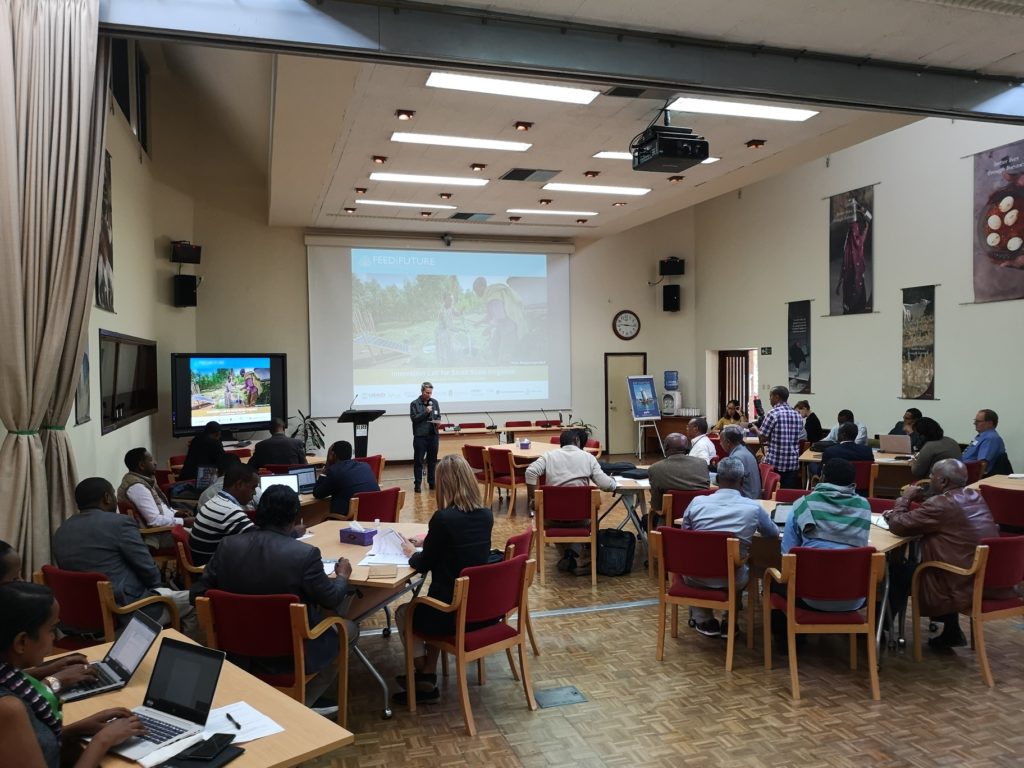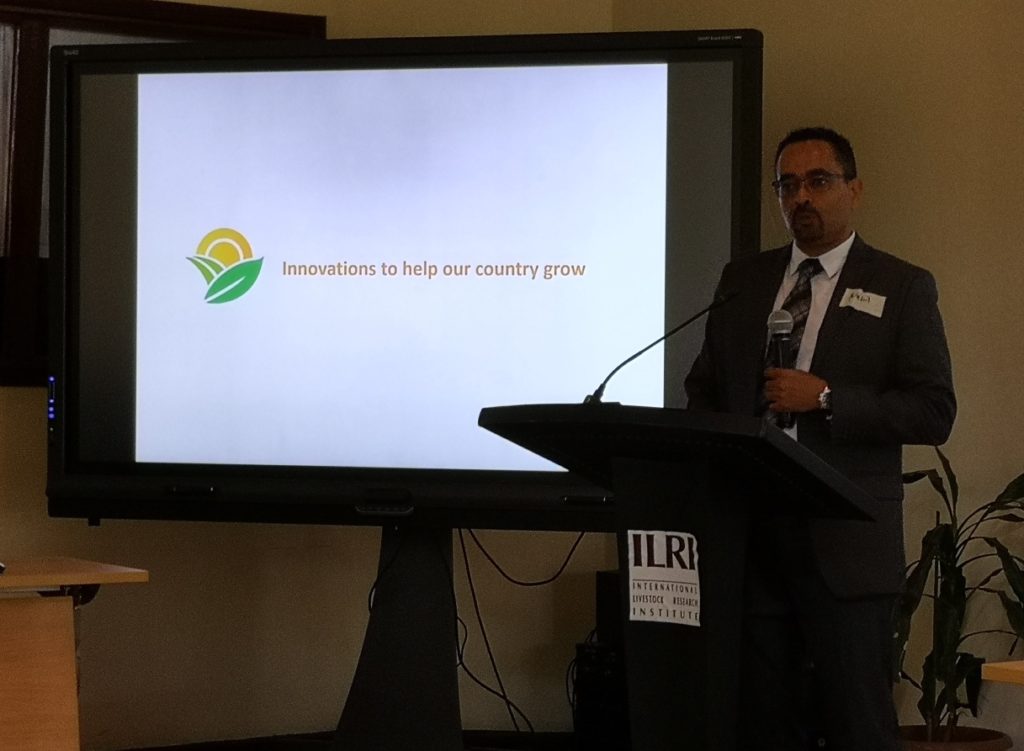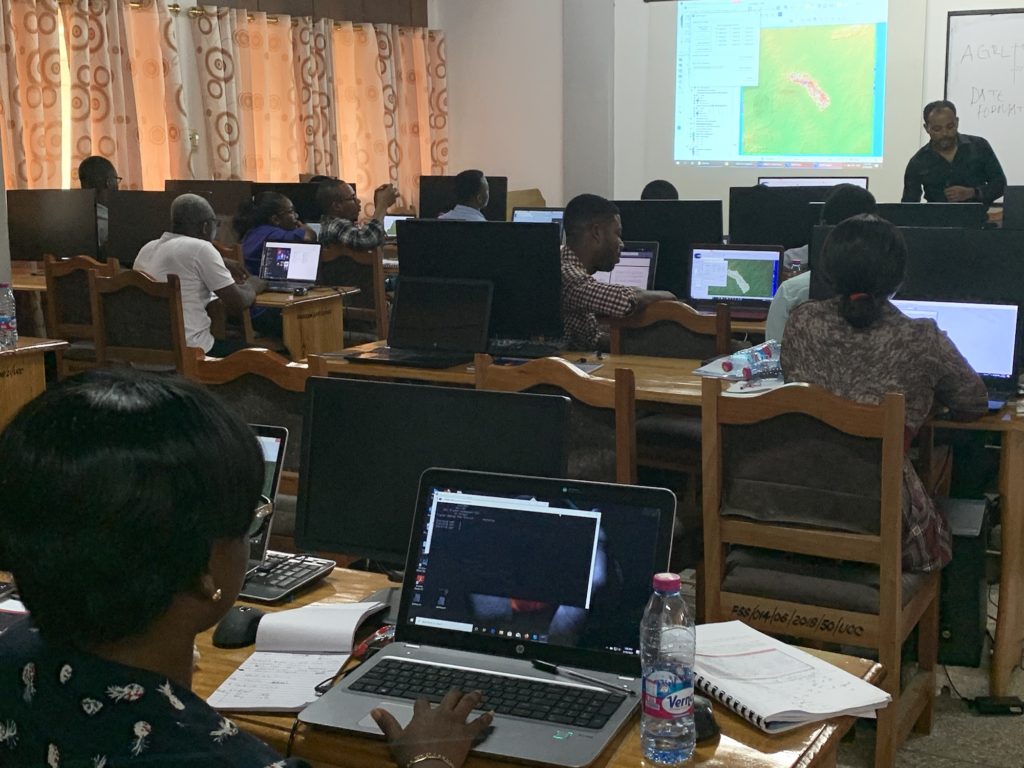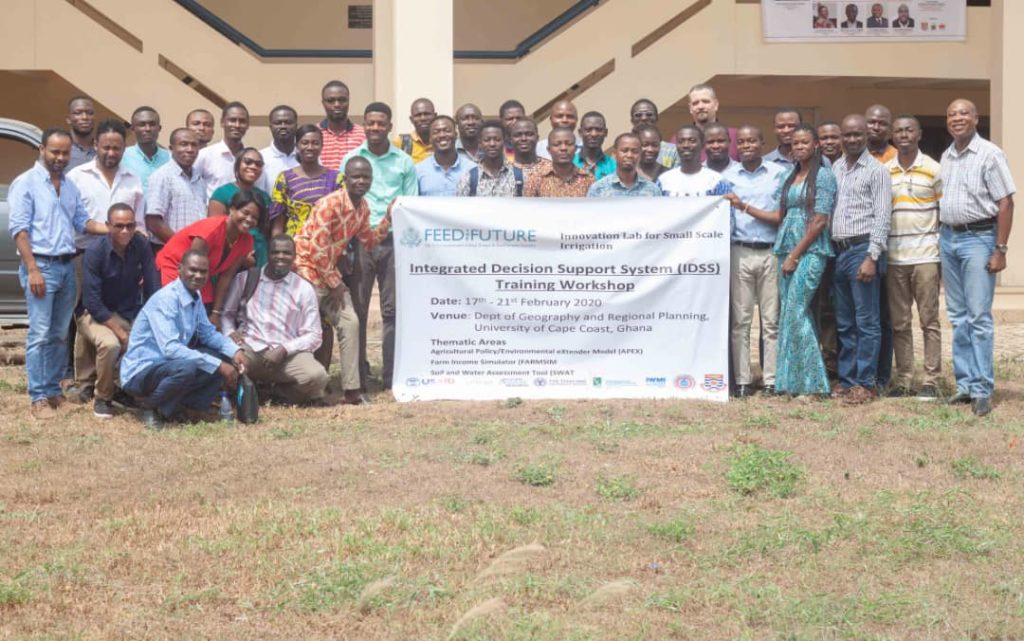by Petra Schmitter and Thai Thi Minh
Farmer-led irrigation has been identified as one way to improve nutrition, increase incomes, and enable water security and greater climate resilience, by institutions such as the World Bank, African Union, and African Development Bank as well as by national governments.
However, systemic barriers, such as lack of access to credit, gender norms, under-developed irrigation supply chains, and limited in- and output market linkages, continue to prevent smallholder farmers from engaging in small scale irrigation globally. Because these farmers generate between 30 and 34 percent of the global food supply, it is crucial to tackle these systemic barriers.
Furthermore, private sector companies are increasingly recognized for the roles they can play in agricultural production and value chain development. This is no different when looking at small scale irrigation development, with irrigation supply chains and services being crucial to the resilience of smallholders and our entire food system. Finally, the market for serving small scale irrigators could be profitable for such companies.
So, how can businesses better be included in and even accelerate farmer-led irrigation and agricultural growth?
Multi-stakeholder dialogues to strengthen food systems
The concept of multi-stakeholder dialogues, and related learning alliances and innovation platforms, is not new. These approaches are used in various agricultural research-for-development projects. Outcomes and successes vary depending on how they are designed, the way they cater to diverse stakeholder interests and views, as well as the individual and institutional commitments. Hence, they need to be carefully designed to ensure contextual relevance to stakeholders’ needs and interests, while addressing the complexity of the enabling environment.
In Ghana and Ethiopia, platforms or dialogue spaces on small scale irrigation either do not exist or have a narrow mandate. Additionally, private sector companies have largely been overlooked as partners in existing platforms. To increase the resilience of our overall food systems by facilitating smallholders’ access to irrigation, we are working toward including the private sector.
The International Water Management Institute (IWMI), under the sponsorship of the Feed the Future Innovation Lab for Small Scale Irrigation (ILSSI), has kick-started system-level collaboration, including with the private sector, through multi-stakeholder dialogues in Ethiopia and Ghana to create ‘win-win’ solutions in small scale irrigation.

A dialogue to discuss regulations and financial support mechanisms for the private sector
Analysis of business cases for solar-powered irrigation in Ethiopia shows that investments in this area could boost food and nutrition security. However, the current lack of clarity on tax regulations for solar-based products and irrigation equipment, following recent policy changes, hampers the current development of solar irrigation supply chains and services.
“Our long time efforts have helped us achieve quality certification and duty-free import for solar energy products in Ethiopia. Unfortunately, while achieving that, solar pumps for irrigation have not yet been included in the list of duty-free items because of some certification issues. We want to bring affordability to irrigator clients, but this requires changes to import regulations,” said Nabil Ishak, Vice-chairman of the Ethiopian Solar Energy Development Association.

Similarly, in Ghana, complex tax regimes constrain market expansion:
“We face some challenges when it comes to importation duties. Solar pumps should be exempted. However, they made us pay for it and said, ‘Later on, you can apply for tax exemption.’ Given the challenges of recovering the taxes, our products are now more expensive for the farmer,” said Iyad Hatoum, Managing Director, HTC IrriGATE.
As long as irrigation equipment remains a high-risk product in frontier markets, suppliers will be unable to reach the poorest farmers. Fragmented markets and unclear application of regulations, as well as limited infrastructure in remote areas, add up to high transaction costs, which are passed on to farmers.
A dialogue space offers the opportunity to bring relevant actors together to catalyze change. Companies’ growing interest in market-based solutions led to unprecedented participation in the multi-stakeholder dialogues: companies made up around one-third of participants in both Ghana and Ethiopia.
A dialogue to accelerate farmers’ initiatives and bundle solutions
Potential ‘win-wins’ emerge when irrigation supply chains and services are integrated with agricultural value chains. In the past, businesses have focused mostly on selling irrigation equipment and less on providing services such as agricultural extension, operation, and maintenance or linkages to value chains. At the same time, development organizations often focus on the agricultural value chains or on micro credit, without necessarily considering the irrigation supply chains and services.
Bringing relevant actors—including private sector companies—together can help bridge these fragmented efforts and create opportunities. For example, the International Livestock Research Institute (ILRI) is setting out to collaborate with farmer cooperatives producing dairy products as an avenue to expand irrigated livestock fodder. Stronger linkages between irrigation suppliers, fodder irrigators, dairy producers, and processors mean business opportunities across the market.
In Ghana, irrigation equipment businesses have also begun to develop such linkages. Companies are providing a bundled package of irrigation equipment and services as well as credits and output market linkages to farmer groups, allowing them to grow vegetables in the dry seasons. These packages help ensure that farmers are able to pay off their equipment after the third harvest and are able to expand their irrigated area within two to three seasons. Hence, in these regions, vegetable value chains can be maintained without disruption from supply shortages in the dry season.
“We had to come up with a complex, but flexible business model since December 2017 to deal with small scale farmers, who have from 1 acre to 10 hectares. We have combined irrigation supply and services, which include installation and after-sale technical support, credit, and market linkages to farmers. This business has brought the best year for us in 2019,” said Kwabena Opagya Amoateng, the CEO of Agro-Africa.
A dialogue for interactive learning and inspiration
In Ghana and Ethiopia, the actors invited to the multi-stakeholder dialogue acknowledged the value in fostering learning and experience sharing. Actors valued the opportunity to learn from what works and what does not, whether it is a business case, a policy regulation, or approaches to support social and gender inclusiveness. Actors mentioned that they see the dialogue space as a means to facilitate adaptive learning from mistakes, reflect upon system-level weaknesses, and leverage others’ strengths.
“From what I have seen today, this multi-stakeholder dialogue has brought quite a significant number of private sector actors, which is an important element, and in my opinion it should continue in the future and also be linked to existing government and development partner dialogues,” said Kaleb Getaneh of Ethiopia’s Ministry of Water and Irrigation.
##
Petra Schmitter is a Research Group Leader for Sustainable and Resilient Food Production Systems, and Thai Thi Minh is a Senior Researcher, both at the International Water Management Institute.




